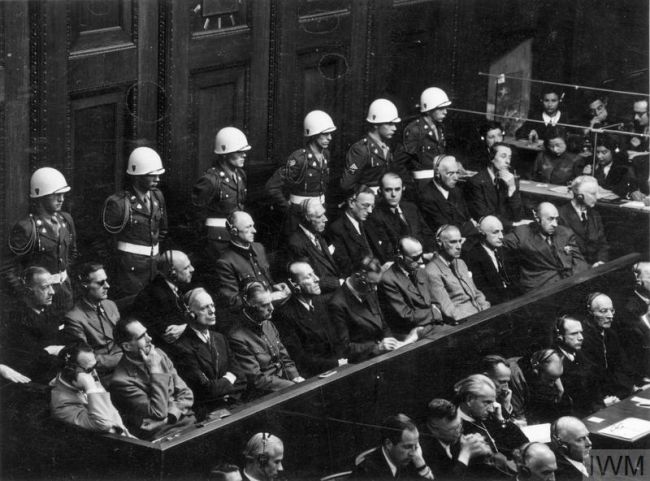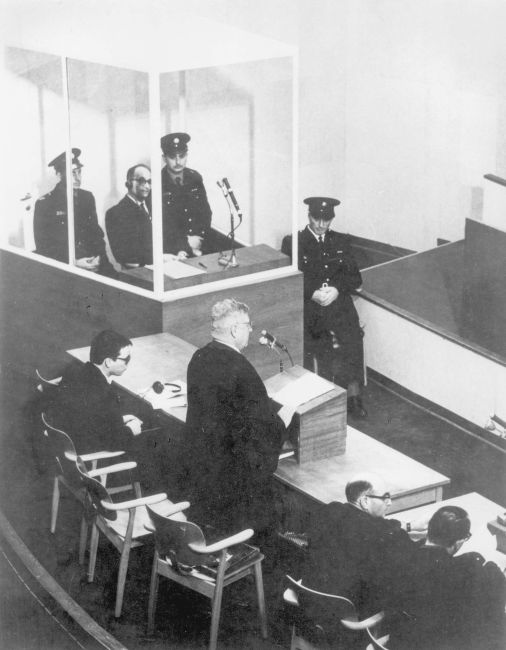The sheer scale of the crimes committed by the Germans during the war made free world public opinion demand swift punishment of all the perpetrators. Already during the war, Allied governments announced that those responsible for crimes committed in German occupied Europe would be brought to justice. For instance, on 13 January 1942, alarmed by reports of the mass extermination of Jews, representatives of nine Allied states issued a written declaration, warning the German authorities of grave consequences if they did not abstain from their criminal policy.
At the same time special institutions were created to gather materials regarding Nazi crimes. By the end of the war, a legal basis was worked out for the future prosecution of the perpetrators. Thus, three main crimes were defined: 1. crimes against peace (planning and inflicting of war), 2. war crimes (violating international treaties and conventions ratified by Germany) and 3. crimes against humanity (murder, exploitation of slave labour, robbery of property and general persecution of civilians for racial and political reasons). It is not by chance that the main trial of Nazi criminals was held in Nuremberg, the city where in 1935 the Nazis announced their well-known racist laws. The trial prepared by the International Military Tribunal was held against twenty-two German political, military and economic leaders.


